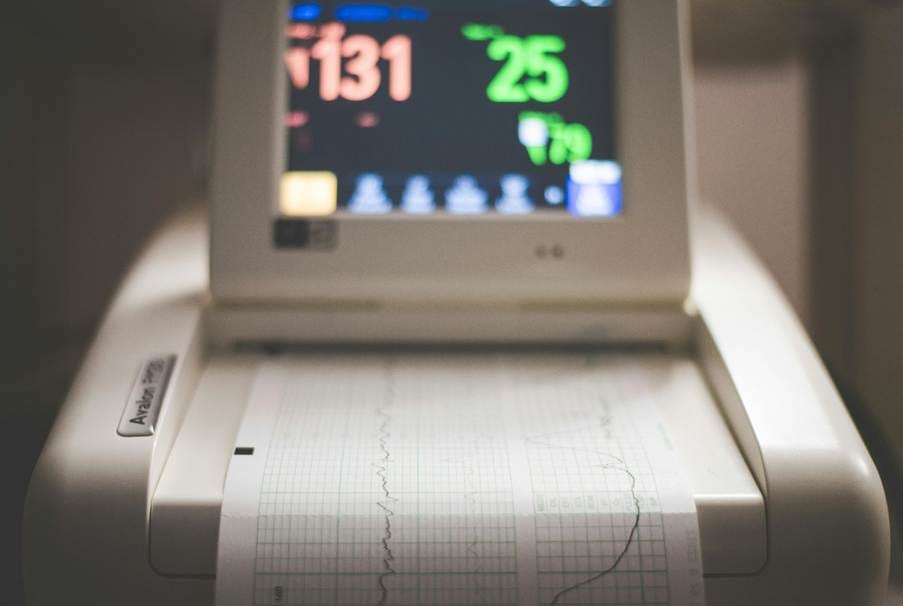A Potential Link Between COVID-19 Vaccines and Increased Heart Rate (POTS)....

The rollout of COVID-19 vaccines saved millions of lives worldwide. However, as with any mass vaccination program, researchers have been closely monitoring potential side effects. One condition that has caught attention is Postural Orthostatic Tachycardia Syndrome (POTS), a disorder that affects the body’s ability to regulate heart rate and blood pressure [1].
We will be taking a deep dive into the potential link between the COVID-19 vaccines and POTS by looking at the findings from a recent review paper. “Postural orthostatic tachycardia syndrome after COVID-19 vaccination: A systematic review” [1].
What is POTS?
POTS happens when your heart rate jumps abnormally after standing up, by at least 30 beats per minute in adults or 40 in teens, without a big change in blood pressure [1]. This can cause dizziness, palpitations, extreme fatigue, and even fainting [1]. It’s a condition that can seriously affect daily life.
POTS can be triggered by viral infections, autoimmune responses, and sometimes vaccinations [1].
What did the Research Find?
The paper looked at 10 studies involving over 284,000 people across the U.S., Europe, Korea, and Japan [1]. Ages ranged from 13 to 52, and vaccines studied included Pfizer, Moderna, AstraZeneca, Novavax, and Sinovac [1].
They found:
· POTS after COVID-19 vaccination is rare [1]. Most cases appeared within 2 to 90 days after vaccination [1]. The review does not state if they also focused on cases beyond 90 days.
· A large U.S. study showed a slight increase in POTS diagnoses in the 3 months after vaccination compared to before the vaccine rollout [1]. This suggests that there is a rare link between the vaccines and POTS.
· Interestingly, the COVID-19 infection carries a higher POTS risk than the vaccines [1]. One study found that people were five times more likely to develop POTS after catching COVID-19 than after getting vaccinated [1]. However, were the cases from the infection mostly in people who hadn’t been vaccinated at all, or did some occur in those who were already vaccinated? This distinction matters because it could suggest that, in rare cases, vaccines might slightly increase susceptibility to POTS, which could then be triggered or worsened by a later COVID-19 infection. More research is needed to answer this question.
· Most reported cases followed mRNA vaccines (Pfizer, Moderna) and AstraZeneca [1].
· One study observed 34 patients, with 10 developing POTS after vaccination [1]. Most improved with treatment; however, two experienced relapses after being reinfected with COVID-19 [1].
How were these cases treated?
· Most cases improved with treatment [1]. Lifestyle changes like drinking more water, eating more salt, wearing compression socks, and doing light exercise helped many patients [1]. Medications like beta-blockers or ivabradine were also used for more serious symptoms [1]. In severe cases, treatments like IV fluids or immune therapies (IVIG, corticosteroids) were tried, though these require close medical supervision [1].
Why Does This Happen?

Researchers don’t fully understand why POTS develops in some people after vaccination [1]. Possible explanations include an overactive immune response or unmasking of pre-existing autonomic nervous system issues (controls heart rate, blood pressure, respiration, etc.) [1]. Genetics and environmental factors may also play a role [1].
A Severe Rarity
The evidence suggests that POTS after COVID-19 vaccines is extremely rare and far less common than after a COVID-19 infection [1]. Health experts stress that the benefits of vaccination still far outweigh the risks [1].
With that being said, just because POTS is rare after COVID-19 vaccinations, these effects still impact real people and can greatly affect their daily lives. Thus, it is important that the general public is aware of all benefits and side effects of vaccinations to provide a trusted and transparent relationship between the public, science, and the medical industry [1].
Join Bare Science
Want to explore more science like this? Subscribe to the Bare Science newsletter for free to stay updated on fascinating topics. Become a Member to gain early access to articles and other exclusive perks.
References
Reference paper “Postural orthostatic tachycardia syndrome after COVID-19 vaccination: A systematic review”
